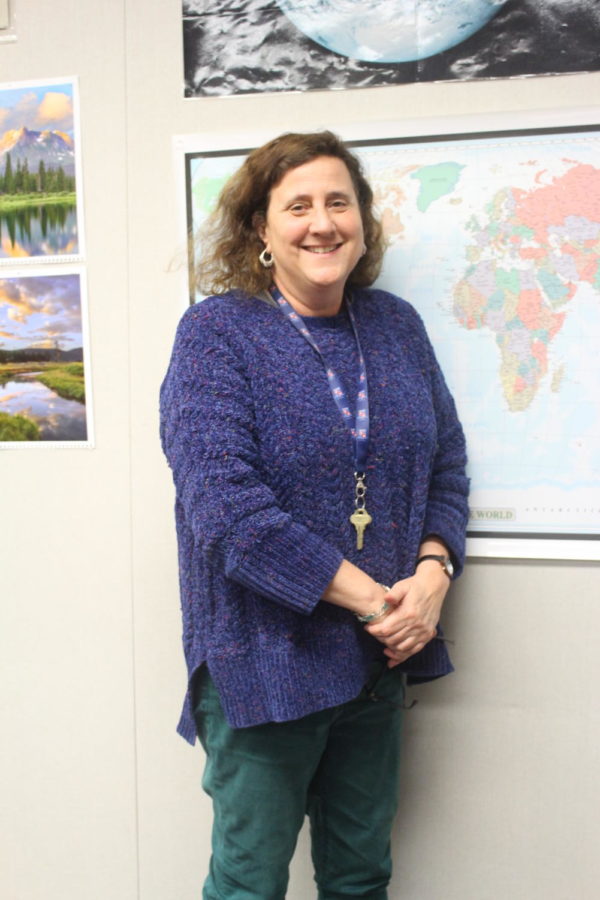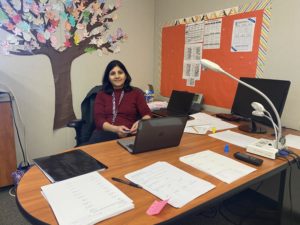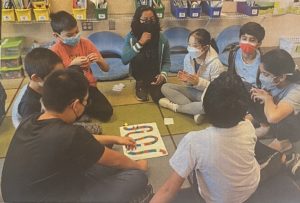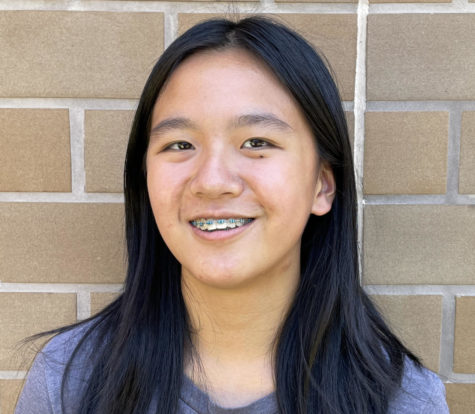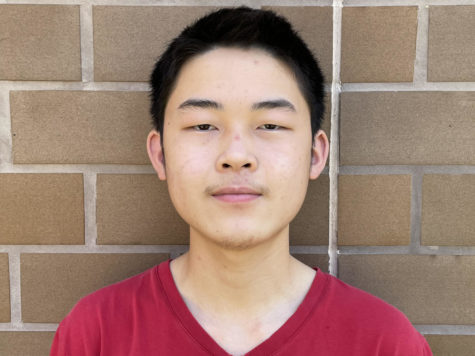Econ teacher Diane Schumacher travels the world — and then brings it back to her classroom
Alex Wahhab
DVHS World Geography and AP Economics teacher Diane Schumacher poses with memorabilia from her time teaching abroad.
March 19, 2023
G20 quizzes. Quartz newsletter debriefs. Investing in social entrepreneurship companies in Central America.
DVHS World Geography and AP Economics teacher Diane Schumacher makes sure her students know the world is not limited to the USA. Her international ardor stems in part from her own experience — before coming to Dougherty, Schumacher taught abroad in Rome, Paris, Brussels and Lugano, Switzerland.
Schumacher’s pre-Dougherty teaching career extends from Europe to Houston, Texas. These stories often find their way into her Economics classes at Dougherty, such as when she informed students of the lack of teachers’ unions in Texas. Or how, while living in Switzerland, her savings and checkings accounts were initially two separate drawers in her home while she waited for her official processing to go through.
Schumacher taught mainly in international schools, such as the American School in Switzerland and Marymount International School Rome. One unique aspect of international schools is that besides students who came from all parts of the world, the teachers also came from abroad.
“The teachers are also new, so everyone’s in a similar position; everyone’s an immigrant and trying to figure out the host country,” she said.
Schumacher attributes her motivation to teach abroad to her own desire to travel and explore without staying in one region for too long. Teaching abroad, while not intended to be a long-term situation, also meant she could understand the norms and lifestyle of a place with more depth and familiarity.
“It’s a different experience than just being a tourist, and so you understand how things work, like the bank, the shopping and getting your WiFi hooked up in another country,” she explained. “And it’s rewarding because you can also meet people and make friends with them, rather than when you’re a tourist, you don’t really make friends with people usually. And you may also have to learn the language.”
In the case of living in another country, familiarity with the language becomes an obligation. Schumacher learned French and Italian to accommodate her living experiences and converse with locals. Though it can be difficult to learn a language as an adult, Schumacher claims her experiences proves “it can be done.” That being said, living and working abroad had its ups and downs.
“Sometimes it was too much. Sometimes I thought, ‘Why did I do this to myself?’ Like finding a place to live and negotiating through all of the immigration is really challenging, so there’s a lot of bureaucracy you have to do. You’re basically making your life a little more difficult,” she explained. “And what’s rewarding though, is you’re able to experience a life in a different country and meet all these different people, and you’re also able to travel locally. In a city like Rome, there’s so much to see, and a lot of times a group of us on Saturdays would do walking tours. [We did it] for three years, and there’s so much we still didn’t see.”
Schumacher frequently taught students drawn from diplomatic or embassy families, such as those whose parents worked for their country’s Foreign Service. To Schumacher, this made classrooms a valuable space for the exchange of cultural knowledge.
“You’re a foreigner in a new country, but then you’re working with all these other students who are also new to the country or not from there, so it’s good because you learn from each other. Because in a lifetime I’m probably not going to be able to visit all of these countries, but I’ve met people from those countries, so it makes the world a smaller place,” she said.
Schumacher’s knowledge of different countries from teaching abroad factors into her current classes. Besides their rich storytelling value, Schumacher’s experiences also help DVHS students relate an otherwise isolated, theoretical study of economics to broader, real-world topics. DVHS senior Boqian Liu pointed out Schumacher’s extensive knowledge of the Italian workplace and economy as a highlight of her international anecdotes.
“It’s really interesting to see how perhaps their budget and financial controls are different from the Americans so that we can compare different economies and see which one works or which one doesn’t work,” he said.
In effect, Schumacher creates a comparative version of AP Economics, in which students understand that the U.S. economy is just one in a complicated web of global market transactions, consumer decision making and government policy.
Spontaneous discussions with an eye on the global stage come naturally for Schumacher, who believes being aware of world events is a timely skill to have at Dougherty.
“[At] Dougherty you have students from all different countries, and we have students that come in that are new. It’s interesting finding out where people are from,” Schumacher said. She added that one benefit of teaching abroad was “hearing other people’s perspectives on things that were not from your country,” leading to an amusing recount of how international students grappled with understanding why the American Revolution was justified.
Her Economics and World Geography students also get a taste of the melting pot of opinions, whether learning the British curriculum of geography or seeing how different governments address inflation and taxes.
“In our AP textbooks, we don’t really see critical figures,” Liu said. “But with her, I feel like we can understand more of what’s happening and what’s really going on.”

